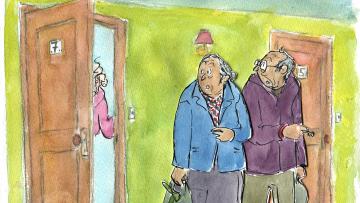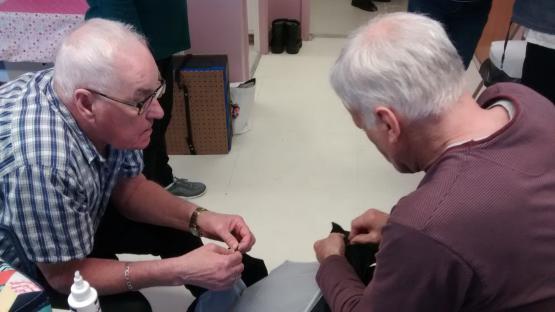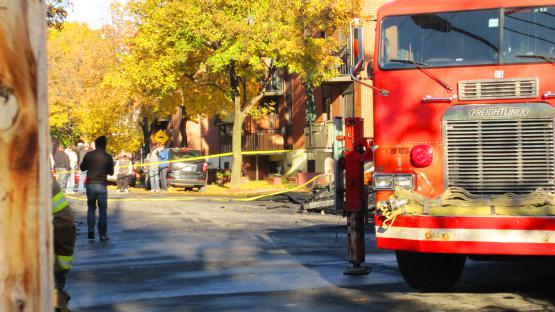Support in specific circumstances
"Our main challenges are to coordinate resources that will make the difference to the most isolated individuals." — Nathalie Morin, OMHM
Helping tenants
The Office municipal d’habitation de Montréal (OMHM) accompanies groups of tenants and vulnerable individuals. Its role is to offer support in specific circumstances (for example, during major works) or when a fragile individual situation is detected. In many cases, tenants are able to mobilize if they have assistance that is adapted to their situations.
Support during major renovation work
Most major works are carried out when tenants are present and frequently have a major impact on the living environment. The OMHM has a team of liaison officers to help minimize these effects, reassure tenants and facilitate the progression of the works.
Our liaison offers are specifically responsible for accompanying individuals and groups of residents while works are taking place. They support them by ensuring a presence on site, by listening to them and responding to their questions and concerns. Here are a few examples of other actions.
Collective accompaniment
- Concluding agreements with local organizations or proposing available services to offer respite or help tenants to prepare their homes.
- Following up in case of changes during the works and organization of activities for tenants.
- Providing information and raising awareness among tenants on how to use new components.
Individual accompaniment
- Assessing tenants' needs to help them better cope with the works and find alternative accommodation for them, if necessary.
- Coordinating help to prepare the home.
- Offer air-conditioning for certain types of work during hot weather.
- Managing certain difficult situations, claims and compensation.
Social workers at the OMHM
Social workers engage with tenants to assess their psychosocial needs and, wherever possible, to refer them to appropriate institutional and community resources. This psychosocial support aims to assist residents who are struggling with difficulties due to a loss in autonomy, mental health, a detrimental environment, situations of violence, compulsive hoarding, etc. Social workers also act as resources during some evictions and are responsible for housing transfer files for biopsychosocial cases.
Housing with community support
Some residents require special support to boost their autonomy (street kids, people with developmental disabilities or mental health problems, etc.). Residents of buildings with community support may benefit from accompaniment directly in their own environment.
These projects are the product of agreements between the OMHM and certain community and institutional organizations. These organizations are concerned at all times with the human aspect, as well as the social accompaniment and support that these people need.
Accompaniment in case of bedbug or cockroach infestation
When the OMHM intervenes in infested housing, it frequently has to help tenants who are in vulnerable situations – who have mobility issues, who are compulsive hoarders or who have psychological issues. It is vital to recognize if this is the case to offer them the help they need. The pest control response officer accompanies tenants and directs them to appropriate resources, if they require them. For example, exterminators require homes to be properly prepared to ensure that bedbug or cockroach treatment is effective. The pest control officer can link up tenants with the appropriate resources to do this.
Are you an OMHM tenant? Please refer to the page Salubrity and extermination in the Tenant Services section.
Accompaniment in emergencies
During urgent interventions in OMHM properties (major fires, crisis situations, etc.), community organizers and social workers support OMHM actions by concentrating on the tenants and their well-being. They may be required to:
- assess the consequences of the event;
- consult with community organizations to see which action is most appropriate;
- coordinate with partners to implement community actions aiming to improve feelings of insecurity caused by the particular event.

Coercion is not the solution
Examples of OMHM social workers' actions with positive effects for residents. (Note: Document is available in French only.)


